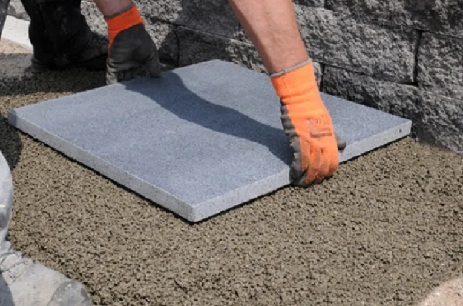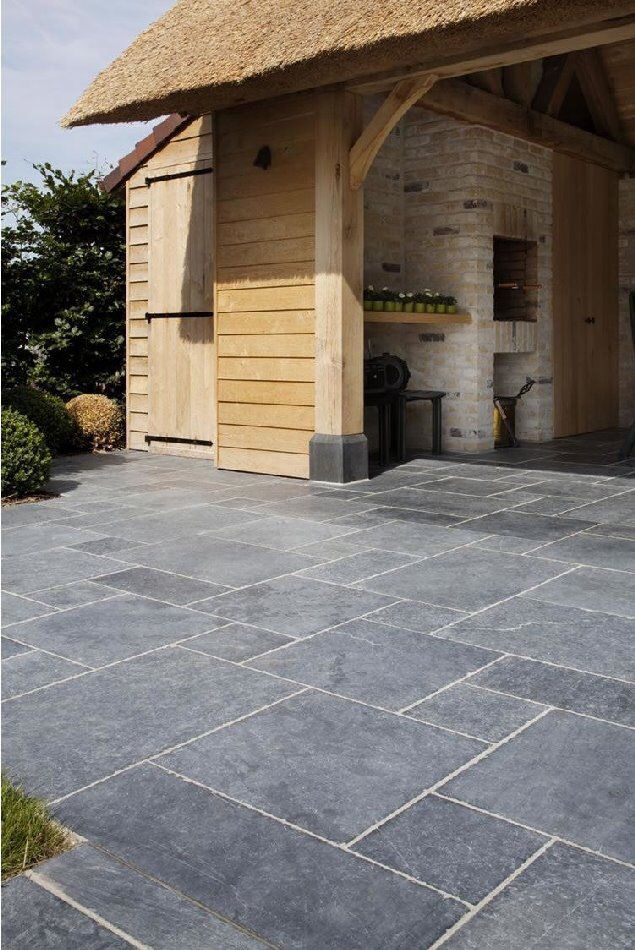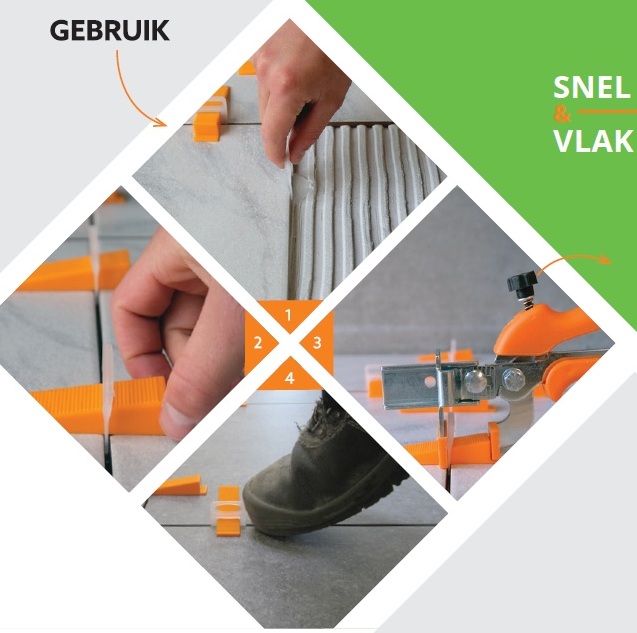Placement advice for natural stone tiles in garden & terrace
Natural stone is a durable and timeless material. However, for beautiful and lasting results, correct placement is essential. Below are some guidelines and tips.
1. Preparation of the substrate
- Provide a stable foundation.
- Remove loose soil to a frost-free depth.
- Apply a layer of stabilized sand cement or crushed rubble foundation (depending on the load).
- For terraces and garden paths, a stabilization layer of 10-15 cm recommended.
- Always check that the substrate flat and well compacted is to avoid subsidence.
2. Drainage and slope
- Lay the tiles with a slope of ±1.5 to 2% away from the house or pool so that rainwater can drain smoothly.
- Avoid standing water: this can cause staining and frost damage.
3. Placement of tiles
- Use a mortar bed (sand-cement) or a thin adhesive layer on a concrete slab, depending on the situation.
- Provide a joint width of at least 3-5 mm.
- Check the flatness and level during installation.
4. Joints
- Fill the joints with a flexible, frost- and water-resistant grout.
- Avoid hard cement joints that can crack with temperature changes.
- Make sure the joints are tightly closed to prevent weed growth and water seepage.
5. Initial cleaning and protection
- After installation, clean the floor with a suitable cleaning agent for natural stone (no acids or aggressive products).
- If desired, apply a impregnating agent to that protects the stone from stains and contamination without losing its natural appearance.
- Regular maintenance with water and a mild soap is sufficient.
6. Practical Tips
- Work with calibrated tiles for smooth placement.
- Always use frost-resistant Belgian natural stone for outdoors.
- Avoid installation during rain or frost to ensure adhesion.
- For heavy loads (e.g. driveway) are thicker tiles or cobblestones designated.
- Work with the Levelit XL system to work neatly and very nicely where the tiles are always positioned correctly
🔨 Recommendation: For perfect results, we recommend having the installation performed by a experienced craftsman. If you do want to do it yourself, follow the above steps carefully and always use the right materials.



